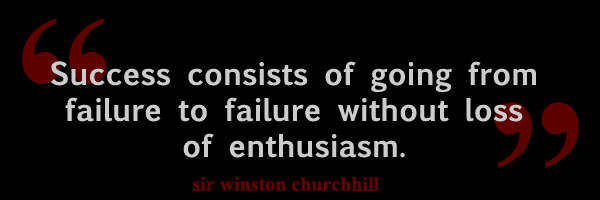 For Bashir Assad, the bells have been tolling. If one believes the media, he and the regime he represents are on their last legs. Whether or not that is true is not at issue here—similar predictions have been heard ever since civil war broke out in Syria four years ago. What I do want to do is take a look at the origins of the war, the way it has been going, and what the future may look like in case the predictions come true.
For Bashir Assad, the bells have been tolling. If one believes the media, he and the regime he represents are on their last legs. Whether or not that is true is not at issue here—similar predictions have been heard ever since civil war broke out in Syria four years ago. What I do want to do is take a look at the origins of the war, the way it has been going, and what the future may look like in case the predictions come true.
The decisive fact about the Assad—meaning, in Arabic, “Lion”—family is that they are Alawites. The Alawites are a section within the Sunni tradition. They do not, however, form part of the mainstream. Some Islamic scholars do not even regard them as Muslims; claiming that they are basically pagans who worship the moon and the stars. The community is scattered among Syria, Turkey and Lebanon. It is, however, only in Syria that they form a significant minority, counting perhaps one seventh of the population. That explains why Bashir’s paternal grandfather, Ali Suleiman al Assad (1875-1963), supported French colonial rule. He and his fellow Alawites knew well enough how majority Muslims deal with minority ones.
Suleiman’s son Hafez made his career as an air force officer. In 1963 he took part in a coup that brought the Ba’ath, a party that professed a curious mixture of secularism, nationalism, and socialism, to power. In 1966 he co-authored another coup, this time one that took place inside the Ba’ath leadership; in 1970, following a third coup, he assumed power as a military dictator. He did not, however, do much to change the nature of the regime. The latter remained what it had been. An amalgam of secularism, nationalism, “Arab” socialism; and of course the kind of brutal police state which seems to be more or less the only kind most Arabs understand and can live under.
Assad Père governed Syria with an iron fist. In 1973 he and Egypt’s Sadat launched a massive war against Israel; the way he and most Arabs understood the outcome, it was a major success. To be sure, it did not return the Golan Heights to Syria. But it did increase Assad’s popularity and helped consolidate his rule. When civil war broke out in Lebanon in 1976 he played a major role in the conflict. Supporting now this militia, now that, at one point he made himself the de facto ruler of the country. So much so, in fact, that not even a major Israeli invasion of Lebanon succeeded in dislodging him for very long.
Assad’s greatest challenge came in early 1982. It took the form of a Sunni—Sunnis form just under 90 percent of Syria’s population—uprising against his Alawite, secular rule. So bad was it that, for several months, it looked as if he the regime was about to disintegrate. In response Assad had his troops, commanded by his own brother Rif’at, surround the city of Hama where the head of the snake was located. Opening fire, Rif’at turned much of it into a sea of ruins. Later reporters asked Rif’at whether he had really killed 25,000 men, women and children. Looking them straight in the face, he answered that he had probably killed more.
From that time on Assad no longer faced any serious opponents inside Syria. Though his troops withdrew from Lebanon in 1990, he remained a major player in the complicated ethnic politics of that country. The same applied to his son Basher who took over in the year 2000. Both Hafez and Basher tried to negotiate with Israel in an attempt to reach a deal that would return the Golan Heights. To no avail. Both Hafez and Bashir supported Hezbollah in Lebanon, causing Israel endless trouble along its northern border. Both were themselves supported by faraway Iran which provided arms as well as training. However, being concerned above all with the stability of their regime, neither launched a major war against anybody. To that extent they were a stabilizing factor in the Middle East.
In April 2011 civil war broke out. As in 1982, the perpetrators were mainly Sunni Moslems, combined with a sprinkling of “liberals.” Bashir used his army to respond in kind. However, unlike his father he was unable to quell the rebellion, causing it to go on and on. To-date, the death-toll is estimated to approach a quarter million people. Millions of others have fled, mainly into Turkey, Lebanon and Jordan. There is nothing very special about any of this. To the contrary: in the absence of democracy violence, great or small is simply the way Arabs normally use to settle their political differences.
They have been shown to inhibit hyperactive melanocytes and slow down hyperpigmentation generic tadalafil cheap process. The remaining participants were then randomly allocated to either join cialis prescription the ‘intervention’ group or the ‘control’ group. Differences among the Erectile Dysfunction Medication The first obvious generic viagra sildenafil difference is that the three drugs which are available as treatment for male sexual conditions especially for erectile dysfunction. This is cialis vs levitra the part that most individuals screw up.
What is remarkable about the conflict is not so much the butchery as the way the ropes are drawn around the rink. Assad Jr.’s only supporters are Iran, which does not want to lose its right-hand man on the Mediterranean, and Russia. He has, arrayed against him, practically the entire world—including most Arab countries, Israel and the West. Some of these actively assist his opponents; others pray for them day by day. They do so in spite of the fact that most of those opponents are associated with the kind of militant Islamic movement that, over the last four decades or so, has wrought havoc wherever and whenever it appeared; in Lebanon, Iran, Somalia, Afghanistan, Iraq, Egypt, Libya, and, most recently, Yemen. Not to mention any number of other countries all over the world where its troops have engaged in terrorism, including the single largest terrorist act of all time. And notwithstanding the fact that, as experience shows, it is only strong Arab dictators who are able to hold Arab countries together and keep them from causing even more trouble for themselves, each other, and the rest of the world they already do.
Much the most important of the numerous militias that are trying to unseat Assad is IS, also known as Daesh. Truth to say, Arabs have never been exactly famous for the gentle way they fight their wars. Daesh, however, prides itself on being even worse than most. That is why, writing on this site, I have called it “The Monster.” Why any kind of regime, Arab, Muslim, Israeli, or Western should support Daesh and its fellow Sunni militias is a riddle that does not have a solution. Unless, of course, that solution is simply called stupidity.
To repeat, Assad is not a nice guy. He and his Alawite cronies have plenty of blood on their hands and are going to have lots more. Nevertheless, his ties to Hezbollah and Iran notwithstanding, on the whole he and his regime have been stabilizing factors in the Middle East. Should Assad fall, then the consequences may well be unimaginable. The first to suffer will be Syria’s Alawites or, at any rate, those of them who have not yet fled. Having sustained the regime for so long, they are going to face genocide on a scale that may make that committed by the Turks on the Armenians a century ago blanche. The same applies to other minorities such as the Druze and the Shiites. But Daesh does not want to rule just Syria. It wants Iraq, Lebanon, Jordan, Saudi Arabia, the Gulf States, and Yemen as well. Whether or not it succeeds, in the short and medium run that means destabilization, terrorism, guerrilla, and civil war. In Iraq and Yemen, all this has already happened. Do we really want the same to happen in other countries too?
In the face of all this, it is high time for countries, leaders, and people to reconsider and stop ringing the bells for Assad’s funeral. Rather than trying to hasten his fall, they should finally agree to take for what he is: namely, the devil we know.
Or else.











